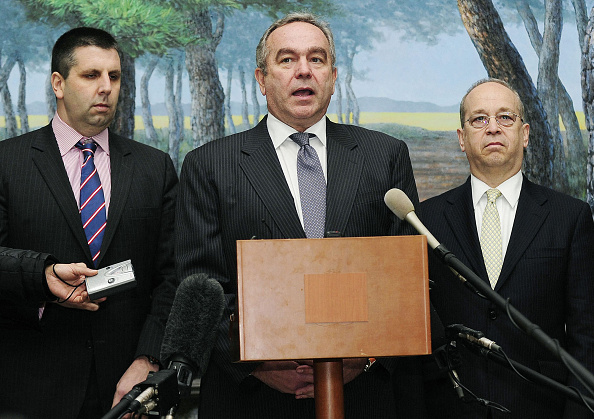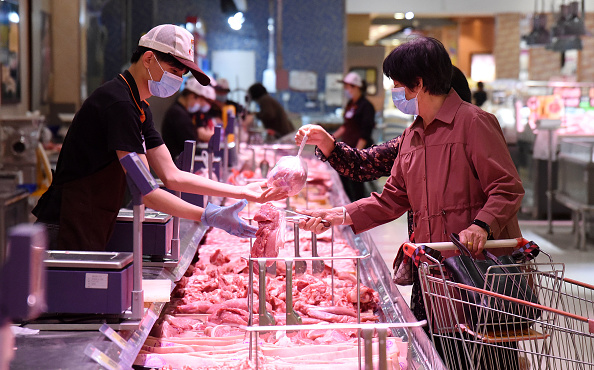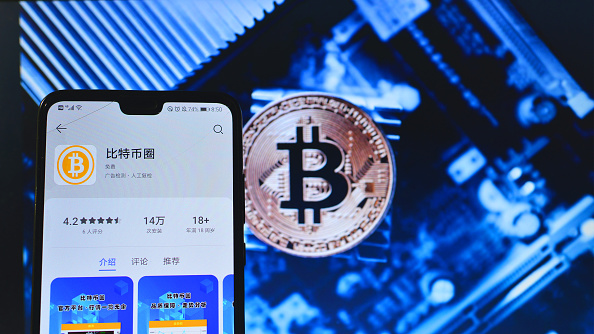
 The End of an Era?
The End of an Era?U.S. Trade representative Katherine Tai held her first discussions with her Chinese counterpart, Vice Premier Liu He, the same official that negotiated the Phase One trade deal with the Trump administration. The call was described as "candid," and both sides affirmed the importance of the trade relationship between their countries.
Despite an overall civility, the U.S. and China remain locked into Trump-era trade regulations that do not seem to satisfy either side. The Biden administration has reinforced tariffs on $380B worth of Chinese imports, while China's deal to increase its purchase of American exports remains 27% behind schedule, according to the Peterson Institute for International Economics. An ongoing point of bilateral contention is the U.S. objection to Chinese subsidies to high-tech companies. Though trading a cut in subsidies for lower tariffs is an option, China has accepted the tariffs in order to continue to invest heavily into its prioritized industries. Read more on the Biden administration's trade strategy in Tai's Trade Challenges, from Zainab Zaheer, a Development Consultant.
As trade discussions continue, Kurt Campbell, U.S. coordinator for Indo-Pacific affairs at the National Security Council, described the U.S.-China relationship as entering a new phase of competition. "The period that was broadly described as engagement has come to an end," he said via teleconference. "The dominant paradigm is going to be competition. Our goal is to make that a stable, peaceful competition that brings out the best in us." Campbell also noted that the U.S. would be looking to hold an in-person meeting for Australia, Japan, India, and the U.S., members of the Quadrilateral Security Dialogue.
 A "Basically Stable" Yuan
A "Basically Stable" YuanChina's yuan reached a near three-year high this week against the falling U.S. dollar, with the currency first surpassing 6.4 to the U.S. dollar on Wednesday and further strengthening throughout the rest of the week. Thanks to China's economic recovery, as well as an influx of foreign investment, the yuan has sustained its growth over the past 12 months. But a stronger currency raises the price of exports, putting a strain on producers.
A central bank official advocated for the currency rise in order to counteract rising import prices, but that was quickly rescinded after other officials assured the yuan will remain "basically stable."
 Let's Get Digital
Let's Get DigitalThe rapidly growing cryptocurrency market crashed over 25% this week after China's Vice Premier Liu He stated China's intentions to further crack down on bitcoin mining and trading. The move was partly due to a surge in electricity consumption as a result of cryptocurrency mining in China over the course of the past year. This has caused a spike in coal demand and illegal coal extraction, which ultimately contributed to unsafe labor conditions and deadly accidents.
Beijing has been cracking down on the cryptocurrency market for the past four years, since China banned the trade of digital currency in 2017. Chinese authorities stated that crypto-related activities pose serious threats to China's financial stability and energy consumption, largely fueled by the speculative nature of the cryptocurrency market.
China, meanwhile, is moving ahead with its plan for its own digital currency, which the U.S. is closely watching, especially its use in international payments. "It is very important for us to follow many central banks' progress on [central bank digital currency, or CBDC,] closely, including China's," Federal Reserve Governor Lael Brainard said Monday The Fed also said last week that it is picking up the pace of its work on a digital dollar, a move seen by some analysts as a response to China's rapid progress on a digital yuan.
Prepared by China-US Focus editorial teams in Hong Kong and New York, this weekly newsletter offers you snap shots of latest trends and developments emerging from China every week, while adding a dose of historical perspective.
- 2021-05-21 One Step Forward, One Step Back
- 2021-05-14 Drifting Trade Ties
- 2021-05-07 Time to Talk
- 2021-04-30 Academic Pandemic
- 2021-04-23 Carbon Cutting
- 2021-04-16 A Hopeful Climate
- 2021-04-09 Technological Frontiers
- 2021-04-02 Back to Basics
- 2021-03-26 The Biden Era
- 2021-03-19 “A Strong Smell of Gunpowder and Drama”
- 2021-03-12 Bridging the Divide
- 2021-03-05 A Tale of Two AI Superpowers
- 2021-02-26 Changing of the Guard
- 2021-02-20 Collective Approaches
- 2021-02-13 Hopes for a Bullish Year
- 2021-02-05 “The Most Serious Competitor”
- 2021-01-29 Looking Towards Multilateralism
- 2021-01-22 Biden’s China Path
- 2021-01-16 Becoming a "Technological Superpower"
- 2021-01-08 Capital Chaos
